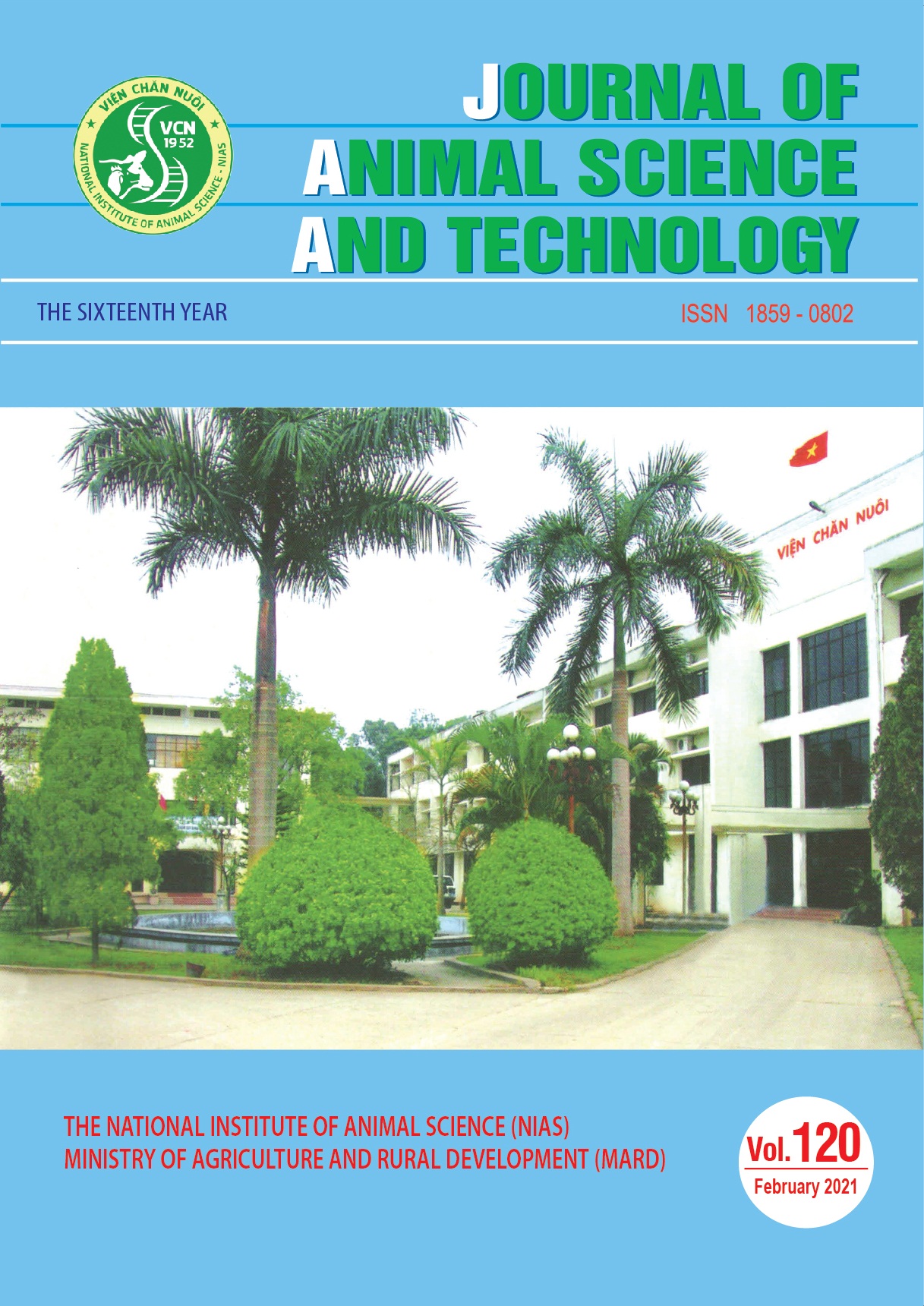Effect of dietary levels of concentrate supplemention on feed intake and nutrient digestibility of crossbred cattle (Brahman Zebu) from 13-15 months of age in An Giang province
Five cattle crossbred (Brahman × Zebu) at 13 months of age were in a Latin square design with 5 treatments and 5 periods to evaluate the effect of dietary levels of concentrate supplementation on feed intake and nutrient digestibility. Five treatments were 5 supplement levels of concentrate in the cattle diets at 0, 0.5, 1.0, 1.5 and 2.0 kg/head/day corresponding to C0, C0.5, C1.0, C1.5 and C2.0 treatments. Fresh elephant grass was fed at 5 kg/head/day, while rice straw was fed ad libitum for all treatments. One experimental period lasted 14 days with 7 days for adaptation and 7 days for sampling. The results showed that the dry matter (DM), organic matter (OM, crude protein (CP), neutral detergent fiber (NDF) and metabolic energy (ME) intakes were significant among diets. The DM intake was significantly different (P<0.05) among the treatments with the highest value for the C2.0 treatment (4.36 kg/head/day) and the lowest for the C0 treatment (2.98 kg/head/day). The crude protein intake was significantly different (P<0.05), the highest value was for C2.0 treatment (444g) following by C1.5 (379g), CP1.0 (326g), CP0.5 (252g) and C0 (188g) treatments. The ME intake was significantly improved (P<0.05) by increasing concentrate supplementation levels from C0 (24.3 MJ/head/day) to C2.0 (41.2 MJ/head/day). The DM digestibility of C1.0 treatment was not significantly different with C0 and C0.5 treatments but it was significantly lower (P>0.05) comparing to C1.5 and C2.0 diets (61.6% vs 58.1, 58.7, 64.5 and 66.6%, respectively). The CP digestibility of C2.0 treatment (76.9%) was slightly higher (P>0.05) than that of C1.5 and C1.0 diets (73.0 and 67.6%, respectively) but it was significantly higher (P<0.05) compared to C0 and C0.5 diets (54.1 and 64.8%, respectively). The conclusion was that growing Brahman crossbred fed dietary concentrate level at 1.0-1.5 kg/head/day tented to improve total DM intake and crude protein digestibility.

